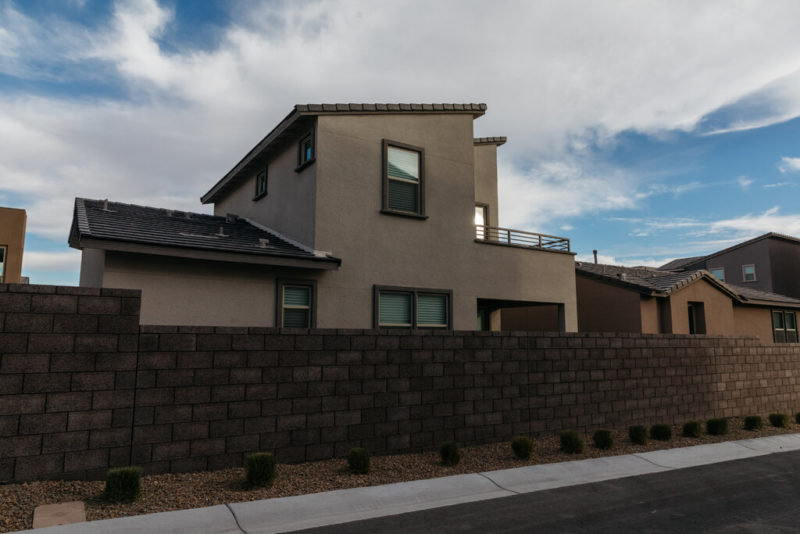As owners remain reluctant to put their properties on the market, developers are rushing to build new homes to meet demand.
When Joel Adler decided it was time to downsize from his six-bedroom house in Parkland, Fla., where he had lived for more than 20 years, he was disappointed with the lack of options.
“There weren’t a lot of homes to look at,” said Mr. Adler, a 76-year-old retired teacher, who had been searching for a year and a half.
Eventually, he turned to Valencia Sound, a gated community in Boynton Beach, Fla., that opened in 2019, joining the growing ranks of home buyers who opted for a newly built house instead of an existing one, a rare bright spot in an otherwise gloomy market.
The housing market has been mired for much of the past year, bogged down by high prices, soaring mortgage rates and a dearth of inventory, pushing many would-be buyers to the sidelines.
Existing homes typically account for about 90 percent of sales, but homeowners who have locked in low-rate mortgages have been reluctant to sell, resulting in limited choices and sky-high prices for prospective buyers. Last year, existing-home sales fell to the lowest level in nearly 30 years, while the median price hit a record high, according to a recent report by the National Association of Realtors.
That spurred a rise in construction, as developers rushed to meet demand and dangled incentives to entice buyers. Sales of new homes jumped 4.2 percent last year from 2022, the Census Bureau reported on Thursday.
“The new-home market has been a bright spot, bucking the trend a little bit,” said Odeta Kushi, the deputy chief economist at First American Financial Corporation, a title insurance company. The inventory of new homes now makes up 30 percent of the overall market, she noted, up from 11 percent.
The expanding choices of new homes appealed to Steve Hawthorne, a co-owner of Vertical Runner, a shoe store in Hudson, Ohio. After owning older homes for most of his life, he said, he was burned out by maintenance costs.
“This is a big headache,” Mr. Hawthorne, 49, said. “When the prospect of buying another house came about, I thought this time, I’m going to buy a new home.” Plotting a move west, he bought a two-bedroom house in Summerlin, a planned community outside Las Vegas developed by Howard Hughes Holdings.
Buyers like Mr. Hawthorne are providing a jolt to the economy; residential investment, which includes the construction and purchase of new homes, jumped in the second half of last year, rising at a 6.7 percent annual pace in the third quarter and 1.1 percent in the fourth, the Commerce Department reported on Thursday.
That is a boon for developers like Howard Hughes, which in its most recent earnings report said it sold twice as many new homes in the third quarter as it had the year before. “Our job is to make sure we have enough houses to meet that buyer demand,” said David R. O’Reilly, the company’s chief executive.
Since March 2022, the Federal Reserve has increased interest rates 11 times in an effort to tamp down inflation. That led to higher mortgage rates: After falling below 3 percent during the pandemic, the average rate for a 30-year fixed-rate mortgage jumped above 7 percent last summer, and has recently hovered around 6.7 percent, according to Freddie Mac.
“The consensus is mortgage rates are going to stay at these levels for a while,” said Jeff Ostrowski, an analyst at Bankrate, a consumer financial services company. His firm has forecast that mortgage rates will fall below 6 percent by the end of 2024, as the Fed has signaled it will begin cutting rates this year.
It will take time for the housing market to adjust, as the supply of homes — new and existing — rises and puts downward pressure on prices. “There is a real shortage of inventory,” Mr. Ostrowski said. “I got a phone call from somebody this morning asking if I want to sell my house.”
Home prices nationwide inched up 0.4 percent in December from the month before, the third straight month of slower growth and the smallest increase since June, according to a report from Redfin, a real estate services company.
New homes are typically more expensive than existing ones, and builders are reconfiguring floor plans and shrinking room sizes in an effort to appeal to budget-conscious buyers.
Sellers of new homes are also offering incentives like discounts on mortgage rates and upgraded features like new appliances and countertops, said Ms. Kushi, the First American economist.
“It’s an affordability question,” she said. “How do you get people in the door? As a builder, you don’t want to lower prices.”
Mr. Hawthorne, the buyer in Nevada, said he was able to negotiate a new washer and dryer and epoxy flooring in his garage. “In the grand scheme of things, they were not big-money items, but they were nice amenities,” he said.
And by opting to buy a new home when he did, Mr. Hawthorne said, he encountered less jockeying from rival buyers.
“When money was cheap, competition was immense,” he said. “When I closed at the beginning of September, there was hardly anyone looking.”
Source: nytimes.com













